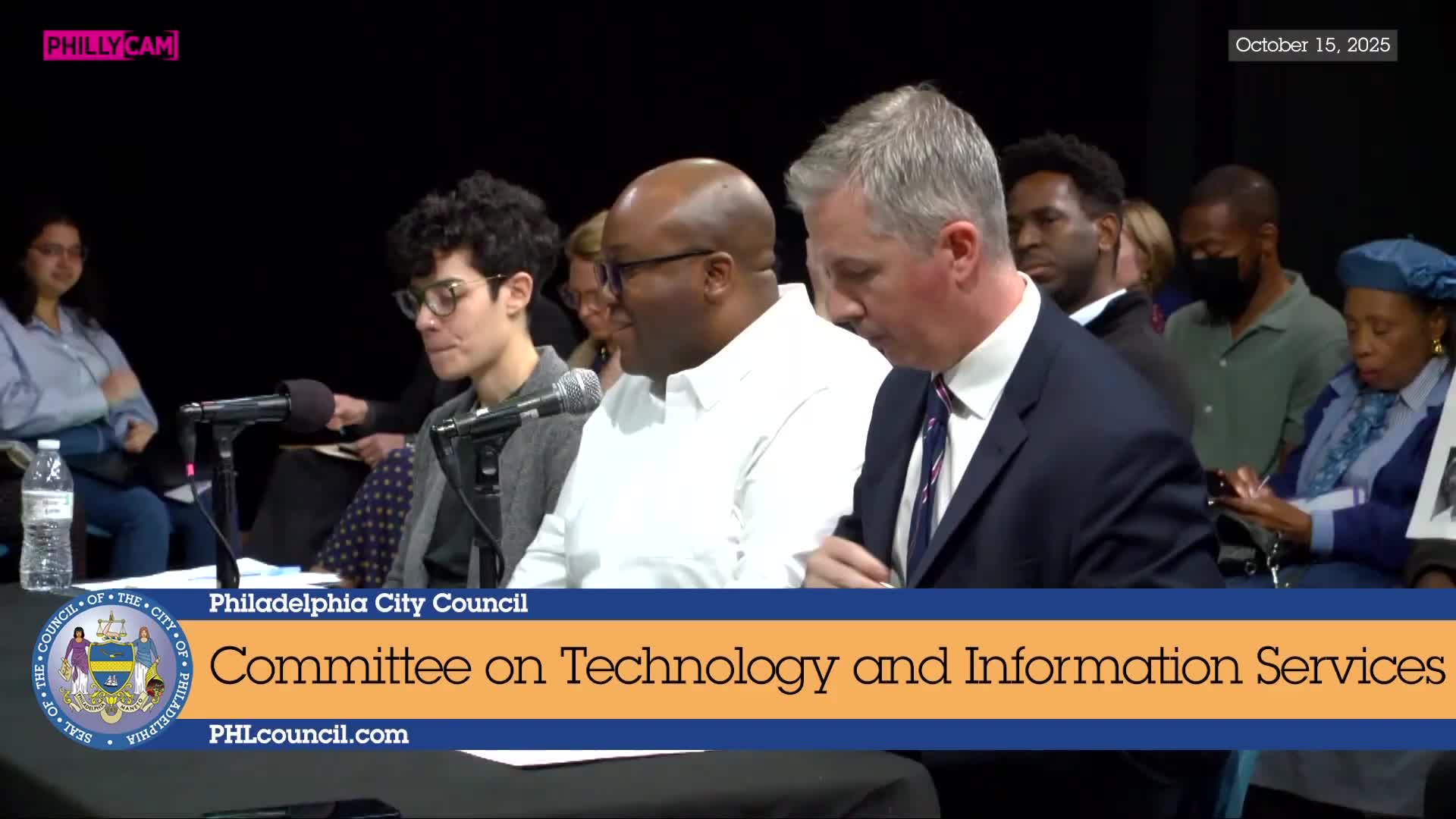Experts, advocates urge limits, transparency and community control in Philadelphia AI oversight
Get AI-powered insights, summaries, and transcripts
Subscribe
Summary
Civil‑rights attorneys, AI policy researchers and community organizers told the committee AI can reproduce harms and recommended preventive measures including bans on high‑risk uses, decommissioning unjust systems, contract conditions, mandatory inventories, community participation in procurement and strong redress mechanisms.
Experts and public advocates told the City Council committee that unchecked government use of AI risks concrete civil‑rights harms and environmental costs, and they urged a mix of near‑term bans, tighter procurement controls and ongoing community governance.
Clarence Oko, senior attorney for civil rights and technology at Tectonic Justice, described cases in which predictive algorithms and secret data sharing produced lasting harms for children and families and said local governments must act because federal enforcement has weakened. Oko recommended the City develop ‘‘critical AI competencies’’ for policymakers, adopt public accountability and oversight measures, enforce existing civil‑rights laws in AI contexts and create simple procedures for the public to request suspension or decommissioning of harmful systems.
Ali Finn of the AI Now Institute urged a ‘‘zero‑trust’’ approach: vendors must prove safety and fairness before deployment, transparency alone is insufficient, and policymaking should start with clearly defined problems rather than an immediate technical solution. She recommended bright‑line bans on the most egregious uses, steps to curb vendor control over public infrastructure, stronger procurement clauses and community‑led decision making.
Advocates from the PhillyTech Justice Collective, Brewerytown/Sharswood Neighborhood Coalition and other community groups testified in a lengthy public‑comment period that surveillance networks, proposed data centers and vendor‑led procurements concentrate risk in low‑income and majority‑Black neighborhoods. Public commenters called for environmental review and limits on data‑center expansion, stronger protections for seniors and students, enforcement mechanisms for vendors that change models, and participatory procurement procedures.
Panelists and council members discussed remediation tools: external auditing for high‑risk systems, data purges, algorithmic disgorgement (a legal remedy the Federal Trade Commission has used to bar companies from reusing unlawful models), private rights of action for residents and decommissioning processes. Several witnesses recommended that any city purchase of AI require contract terms that force vendors to notify the city and suspend features that alter data usage or model behavior.
The committee did not adopt policy during the hearing. Several council members signaled interest in community notice and comment at multiple stages of procurement, and asked the administration for clearer timelines and for the membership and public‑meeting schedule of the proposed AI governance committee.
